The basic things every homeowner should know

This article originally published on Thumbtack and is syndicated by Cheapism.
Owning a home is the American Dream, but there’s a lot that they don’t tell you before you sign on the dotted line. You’re suddenly responsible for maintaining — and sometimes improving — your biggest investment. Without a user’s manual, it’s easy to feel lost. So where do you start?
You can boost your confidence and get a grip on the home-owning basics. Here’s what every homeowner should know to keep their dream house in working order.
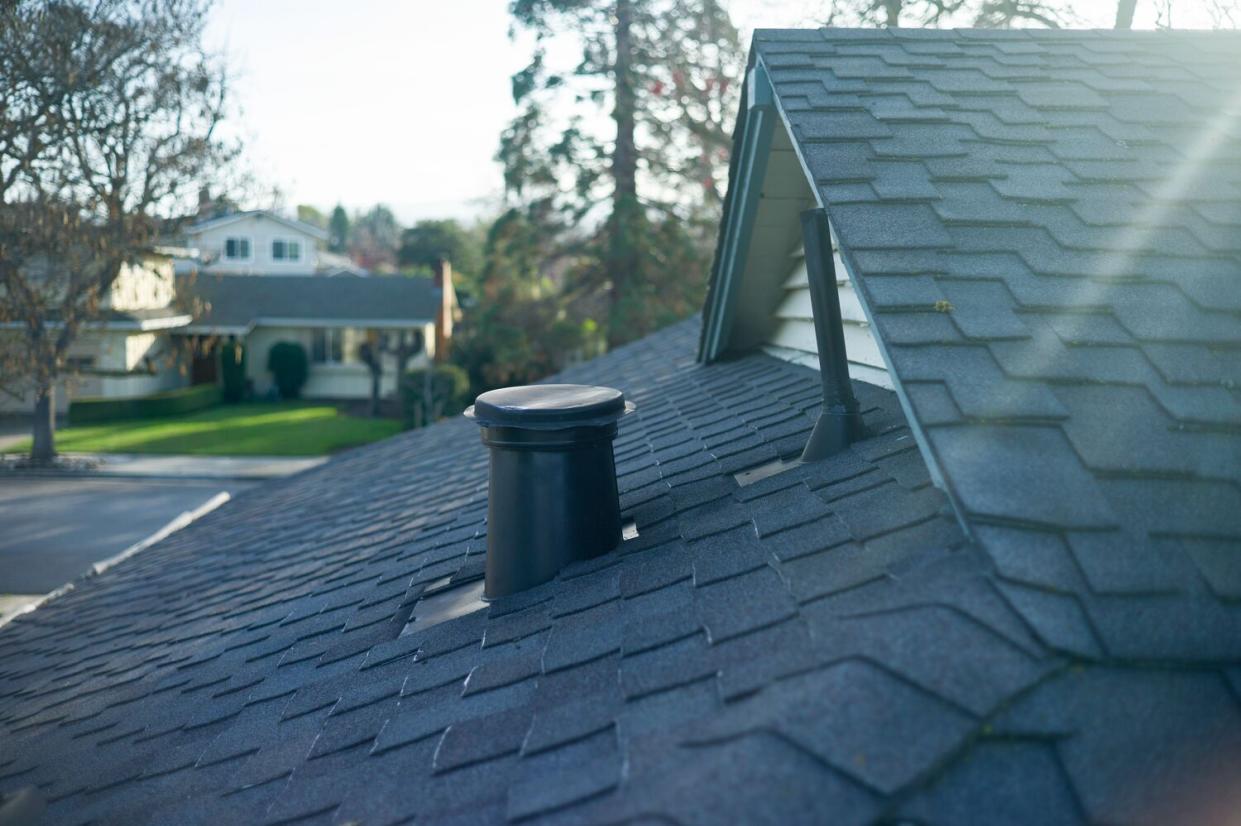
Your roofing system is arguably the most important part of your home’s exterior. It protects your home from the outdoor elements, especially water. Strong winds, rain, fires and sunlight can damage your roofing system. And if it becomes too damaged, you could be left dealing with expensive problems, including mold, water damage, replacing missing shingles or even replacing your entire roof.
So throughout the year (and especially after severe weather), inspect your roof for debris and signs of damage. If you’re thinking about upgrading your roof, consider using durable materials like metal and concrete — both of which can help protect your roof from fires.
Related: How much does a roof replacement cost?
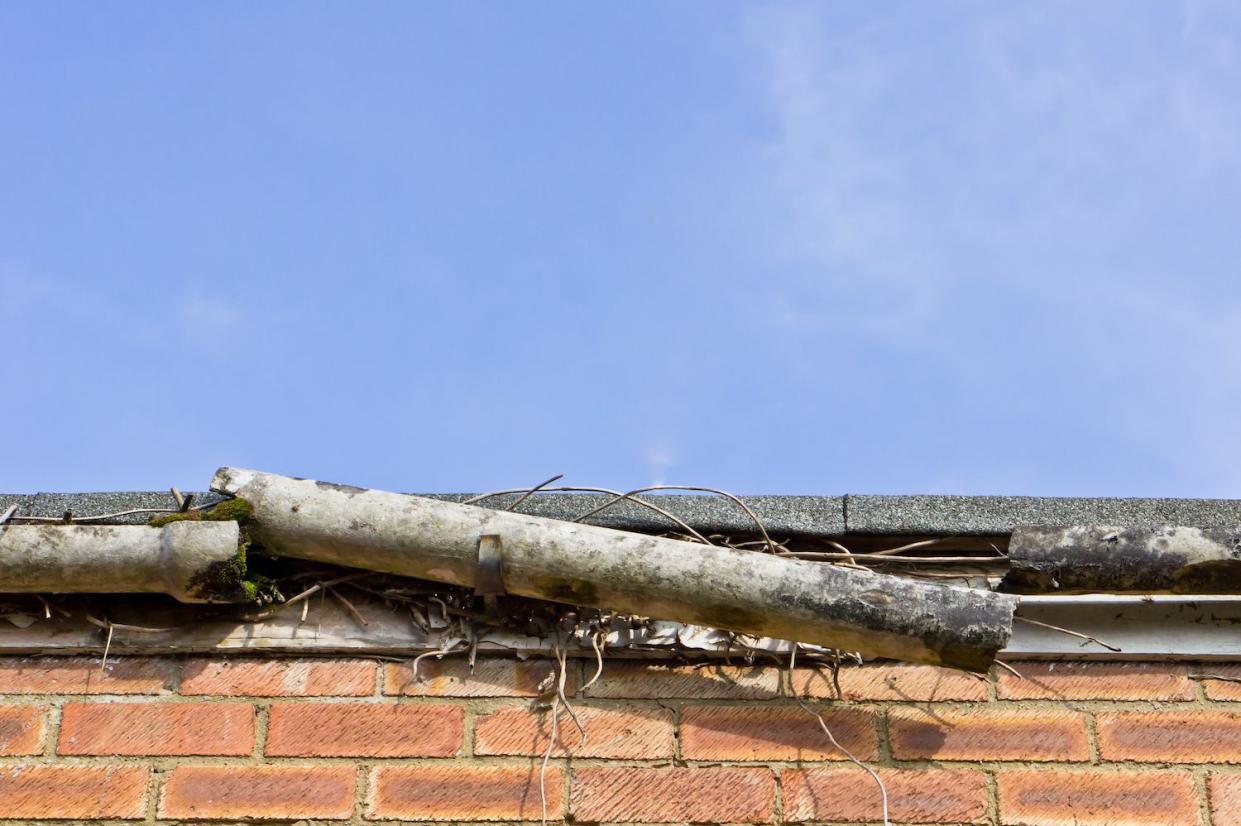
Cleaning gutters twice a year is essential maintenance. When leaves and debris clog your gutters, it’s not only unsightly — it can severely damage your home. Water can’t drain properly if your gutters are clogged. When winter comes, this can lead to freezing and thawing issues that can crack the gutters and cause ice dams to form on the edge of your roof. This could ultimately lead to rot, leaks, water damage, mold and broken shingles.
Even without freezing temperatures, clogged gutters can threaten your home’s integrity. Unclogged gutters and downspouts will direct water away from home. On the other hand, clogged gutters will lead to pooling water around your foundation, which can cause cracks. Clogged gutters can also cause leaks inside your home, flooded basements, broken gutters, pest infestations and more.
Related: How much does gutter cleaning cost?

Your furnace is one of the most important parts of your home, so having a professional do a maintenance check each year is critical. Combustion systems need to be checked for safety hazards like carbon monoxide leaks A tuneup will also help ensure your system is running at peak efficiency, keeping your utility bills low. Don’t forget to also service central air when you book an appointment.
Related: How much does furnace cleaning cost?
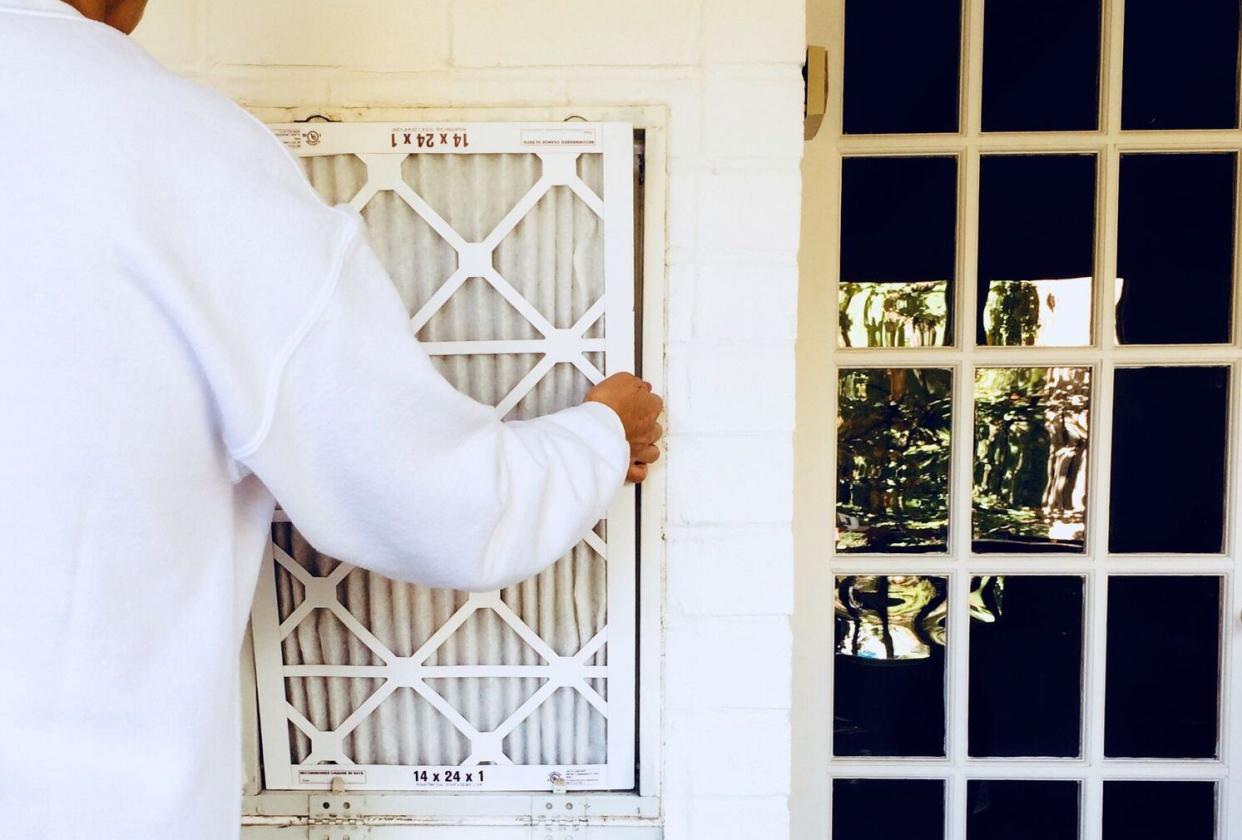
The Environmental Protection Agency (EPA) recommends cleaning or replacing filters in your furnace and air conditioners every 60 to 90 days to improve your home’s indoor air quality. If you have pets, you may need to check your filters every month.
Clean filters also help your system run efficiently, which will help you save on fuel and electricity costs in the long run. The Department of Energy (DOE) estimates that “replacing a dirty, clogged filter with a clean one can lower your air conditioner's energy consumption by 5% to 15%."
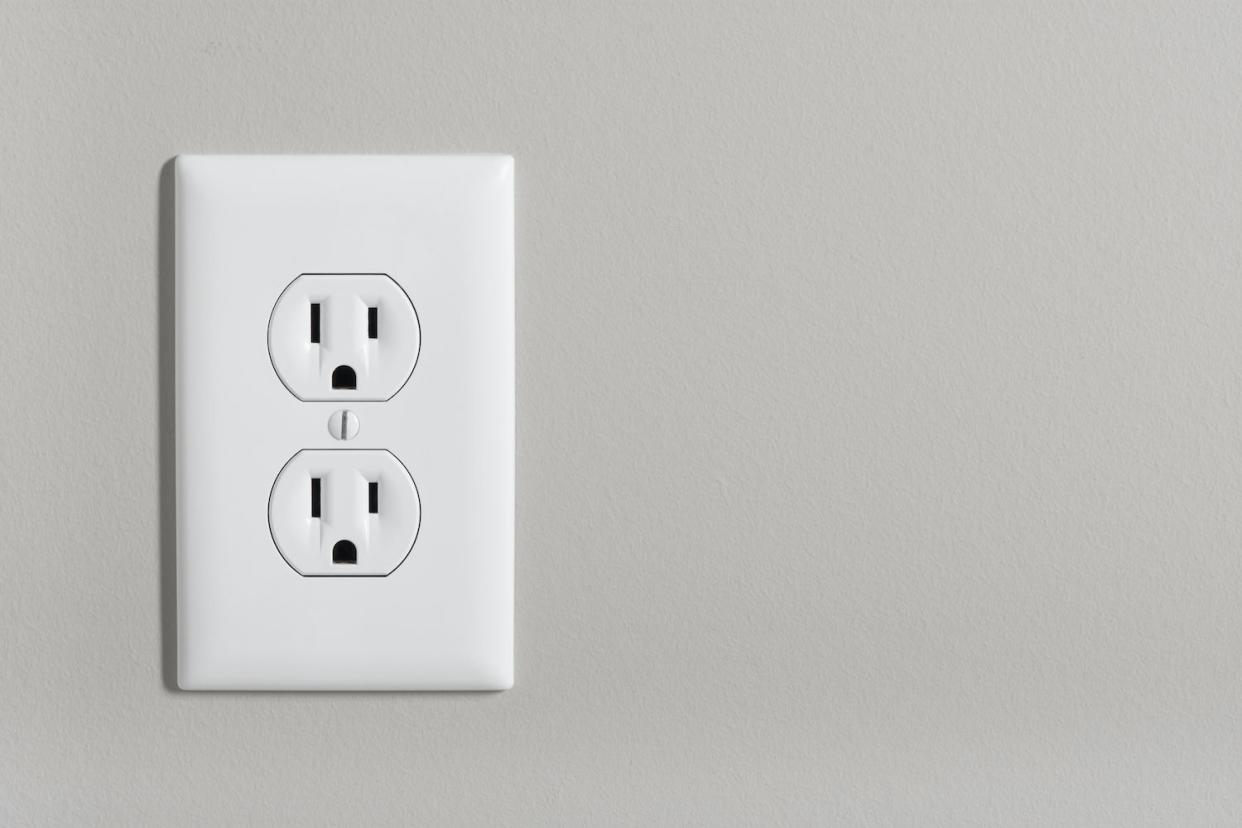
If you notice your wall outlets are feeling a little warm, call an electrician right away, states the National Fire Protection Agency. This can be a sign that your wiring is damaged and overheating, which could cause a fire. Scorch marks, frequent tripping circuit breakers, discoloration, burning odors and smoke are also signs you should never ignore.
Related: How much does switch and outlet repair cost?

When you want to hang a picture but can’t find a wall stud, you don’t have to change your whole decorating plan. Instead, insert a wall anchor to lock a screw into your drywall. These small wonders help keep shelving, artwork and other wall hangings secure and protect drywall from tear-outs.
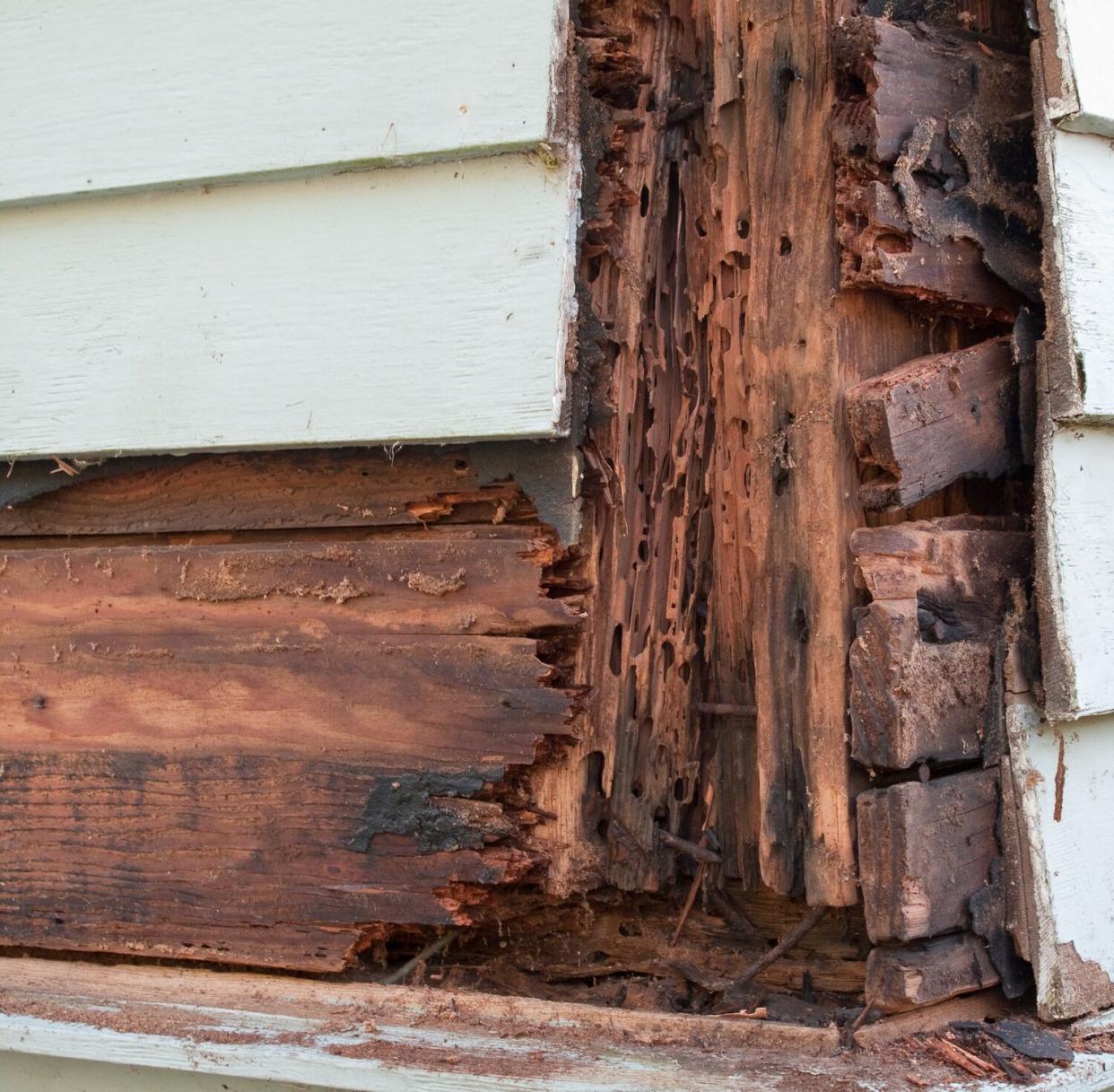
Keep an eye out for any discoloration, peeling paint, bubbling paint, warping or a bunch of small holes in your wooden walls, siding, deck and other woodwork. These can be signs of various issues such as termites, wood rot, mold, water damage and more.
When in doubt, get a professional’s opinion. For example, if you suspect termite damage, call a pest control service that can conduct a wood-destroying organism (WDO) inspection.
Related: How much does an exterminator cost?
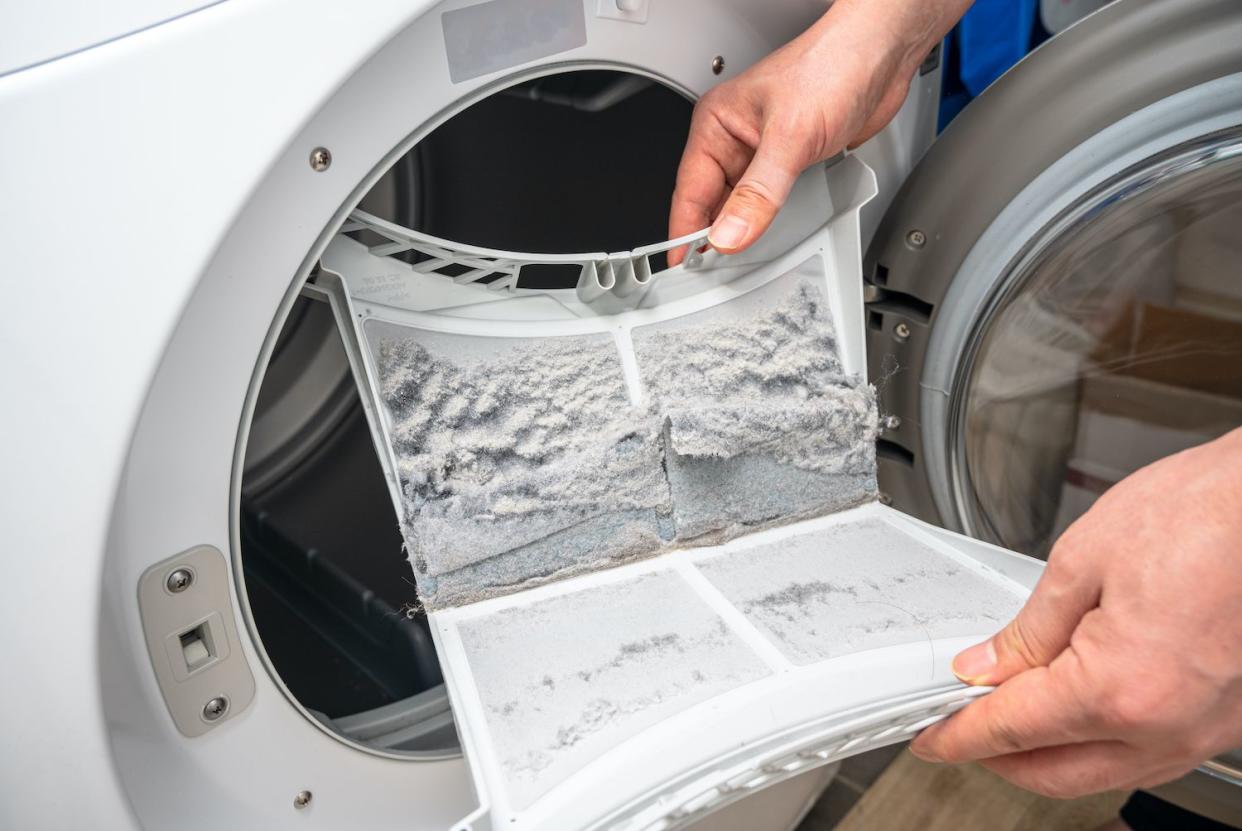
Each year, there are 2,900 reported dryer fires — and they cause $35 million in property loss, according to the U.S. Fire Administration. The main cause? Failure to keep your dryer clean, which mainly consists of emptying the lint trap with each load and periodically cleaning out the exhaust hose. You can DIY this task or get a professional to inspect and empty your exhaust.
Related: How much does dryer vent cleaning cost?
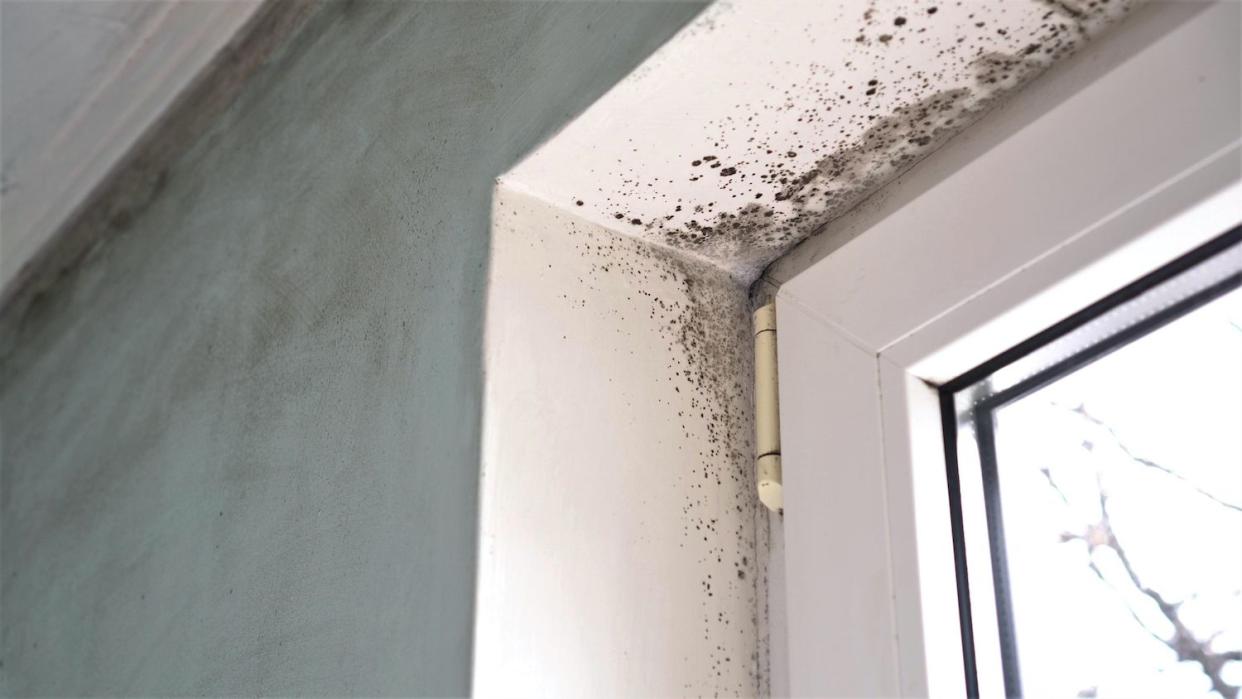
A musty smell is more than just unpleasant — it’s often a sign that your home has water damage, perhaps caused by a hidden leak or poor ventilation. Either way, the musty smell could indicate the presence of mold and mildew. Don’t ignore this as it can make allergies worse and may even be toxic.
Even without mold, the water damage could lead to rot and bigger leaks in the future — all of which could spell expensive trouble for your home’s structural integrity.
Related: How much does mold remediation cost?

If you hear odd sounds in your walls, it may be time to call an exterminator. Mice and other rodents often travel through walls, so you may not see them until there’s a huge nest. Shuffling, scraping and scurrying sounds in the walls is usually an indicator that rodents or pests are making your house their home. Rodents present a health hazard and can damage your wiring or anything else they decide to gnaw on. It’s better to investigate sooner rather than later.
Heads up: rodents aren’t the only culprit when you hear strange sounds. Depending on what you hear, you could have a HVAC, furnace, plumbing or appliance issue. Pay attention to where the sound is coming from and let a professional know what you’ve been hearing so they can help you identify the problem — and fix it.
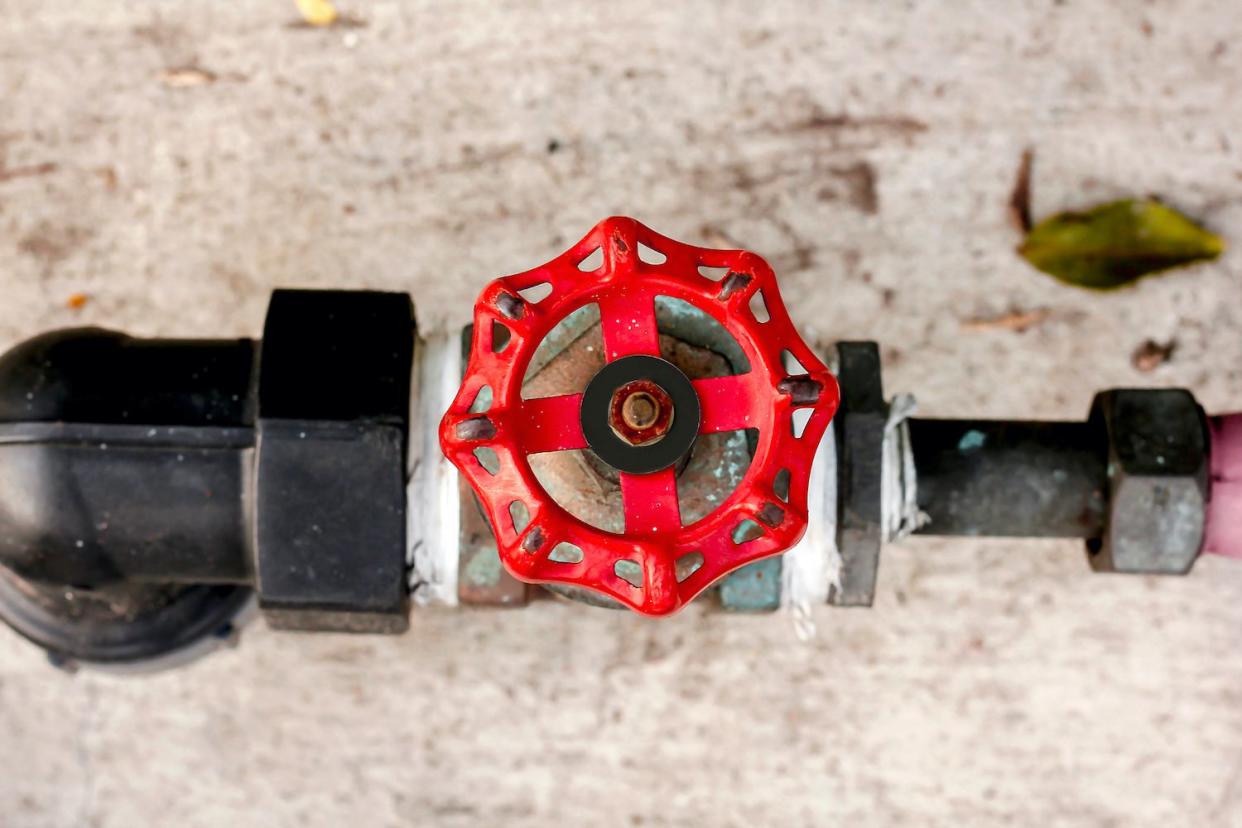
If you have a burst pipe or other plumbing issue, the first thing you’ll need to know is how to turn off the water to limit the damage to your home. Find out where your main water line is located and look for the shutoff valve (typically a ball or gate valve) to make sure it works. Knowing how to turn off the water in an emergency could spare you lots of expensive damage.
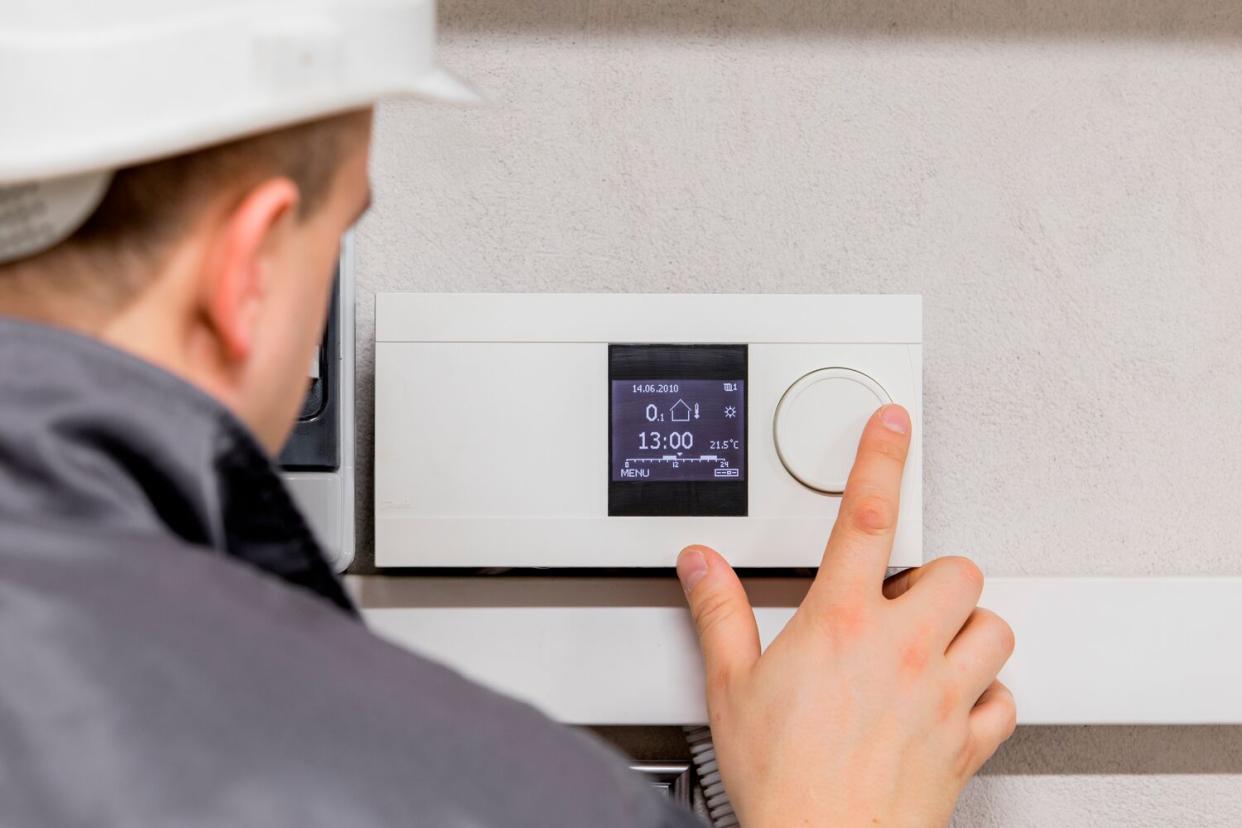
A home energy audit can lead to big energy savings over time, according to the DOE. An auditor will inspect your home for energy loss and help you find ways to make your home more efficient. For example, they’ll let you know if you need additional insulation, new windows or weatherstripping.

If you’re planning a renovation or need to replace a major appliance, HVAC system, insulation, windows, doors or roofing, check with your state and local government to see what rebates and tax breaks they may offer to get the job done. Many states offer incentives to make your home more energy efficient, so consider choosing the right materials, appliances or systems that can put more money back in your pocket.

There will likely come a time when you want to improve a certain area of your home, whether it’s your bathroom, kitchen, landscaping, etc. However, make sure you know which projects are worth the financial investment.
For example, the National Association of Realtors (NAR) and the National Association of the Remodeling Industry (NARI) found that new wood flooring, hardwood floor refinishing and new roofing recoup more than 100% of the cost to complete those projects.
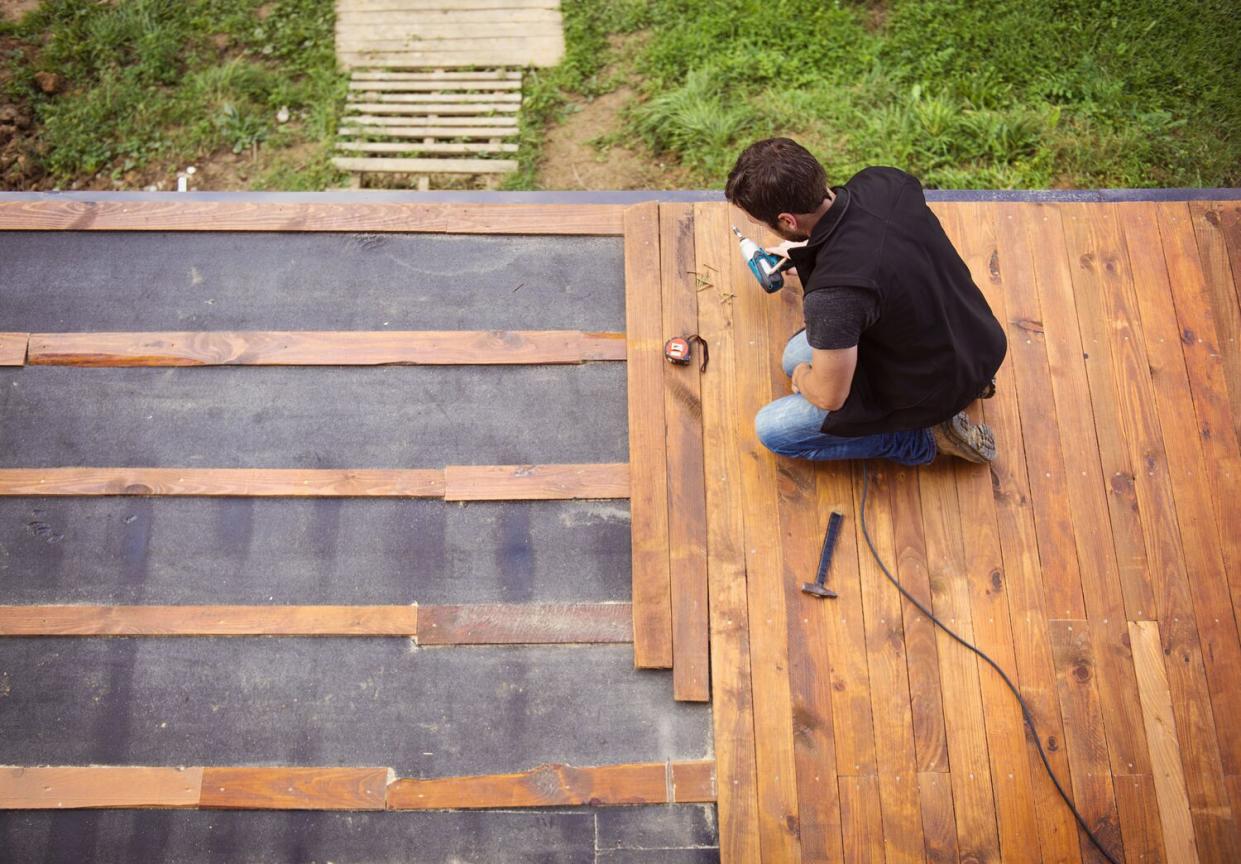
If you’re an avid DIY-er, make sure you look up the building codes in your area before you start your project. In many cities, you’ll need to obtain a permit before you tackle a major project. These projects typically include:
Deck projects
Fence projects
Home additions
Projects that involve gas lines
Siding projects
Water heater replacement
Major plumbing projects
Major electrical projects
Do your research around permits to avoid any delays with your project — or worse, being hit with a hefty fine.

When you need to contact a professional to make a repair, it’s good practice to get a few estimates — and not just to save money. A detailed estimate will also outline the scope of work, and show you how each contractor would approach the job. You should also ask for a proposed start date and estimated time to completion, which will help you make the best decision about who to hire so the work doesn’t take longer than you anticipated.
Related: Cost estimates for various home projects.
https://thumbtack.57ib.net/c/34592/269257/4348?subId1=msnshop&subId2=33929&utm_source=cma-affiliate&u=https%3A%2F%2Fwww.thumbtack.com%2Fprices
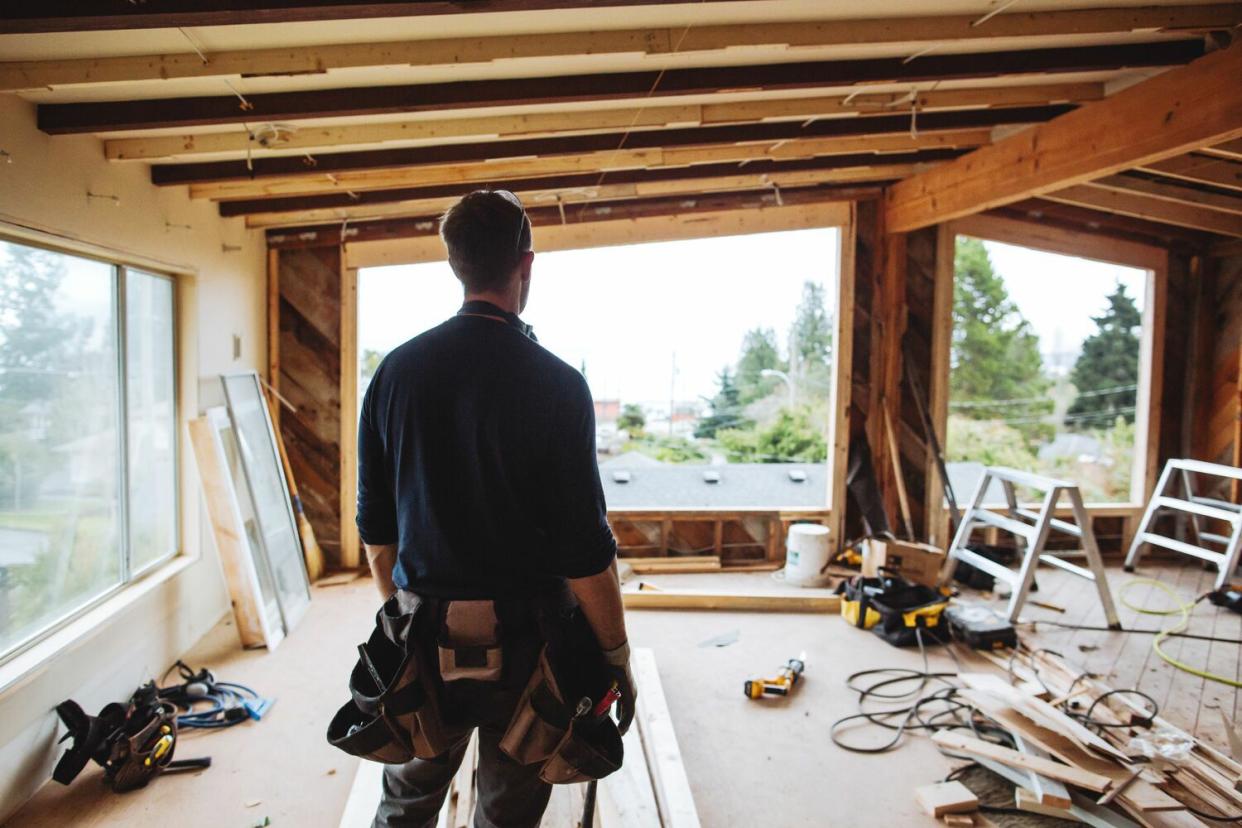
Some states require contractors to have licenses, depending on their fields. A license proves that the state has vetted the contractor. It also means the pro has met the requirements for education and experience, so you know they’re qualified and legally eligible to perform the work.
Certification, on the other hand, is offered by private entities like professional associations. Certification may also indicate extra know-how, but it’s no substitute for a full license if one is required in your state. The best case scenario? The professional you’re thinking about hiring will have a state license as well as a certification or two.
Related: Tips for hiring contractors.

Any time you hire a handyman or contractor to do work on your home, make sure they have insurance. If they don’t, and something happens that causes damage, you’ll be on the hook to pay for it. Reputable contractors will be happy to share their insurance information with you. If they aren’t willing to, steer clear.

With intense storms, fires and other natural disasters occurring every year, it’s important to understand what your homeowners insurance does and does not cover. According to the Insurance Information Institute, most standard policies will cover home repairs caused by natural disasters and severe weather (hurricanes, fires, hail, etc.), as well as personal belongings destroyed by various disasters.
However, standard homeowners insurance doesn’t cover flooding or earthquakes. Yep, it’s true. You’ll likely need to get additional coverage or a separate policy for those disasters. Also, many policies also won’t cover any repairs that were the result of poor maintenance.
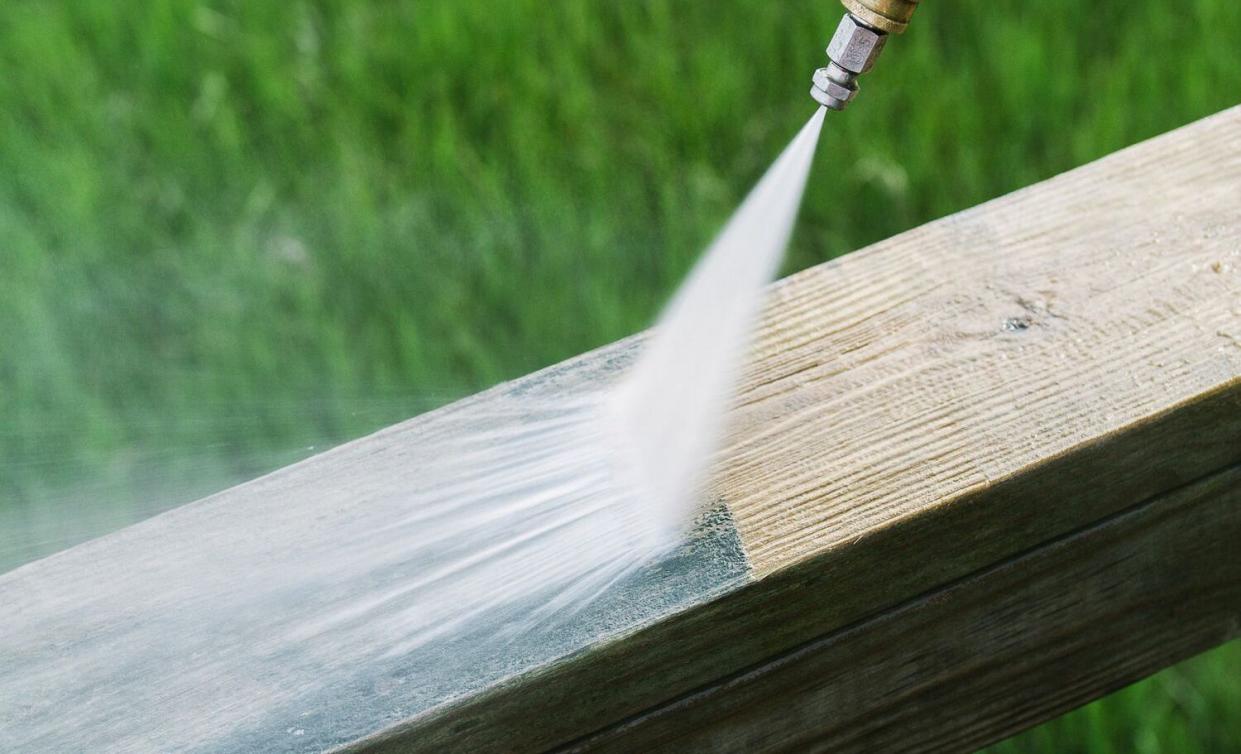
Performing home maintenance tasks isn’t exactly fun, but the reward is worth the work. Cleaning your gutters, servicing your HVAC, cleaning out your dryer vent — all of these task can help you protect your home and avoid dealing with major repairs down the line. But there are other personalized maintenance tasks you should complete. Depending on the type of home you have, you should complete other projects as the seasons change, including pressure washing, painting your home’s exterior, sealing your deck, chimney sweeping, pool cleaning and much more.
